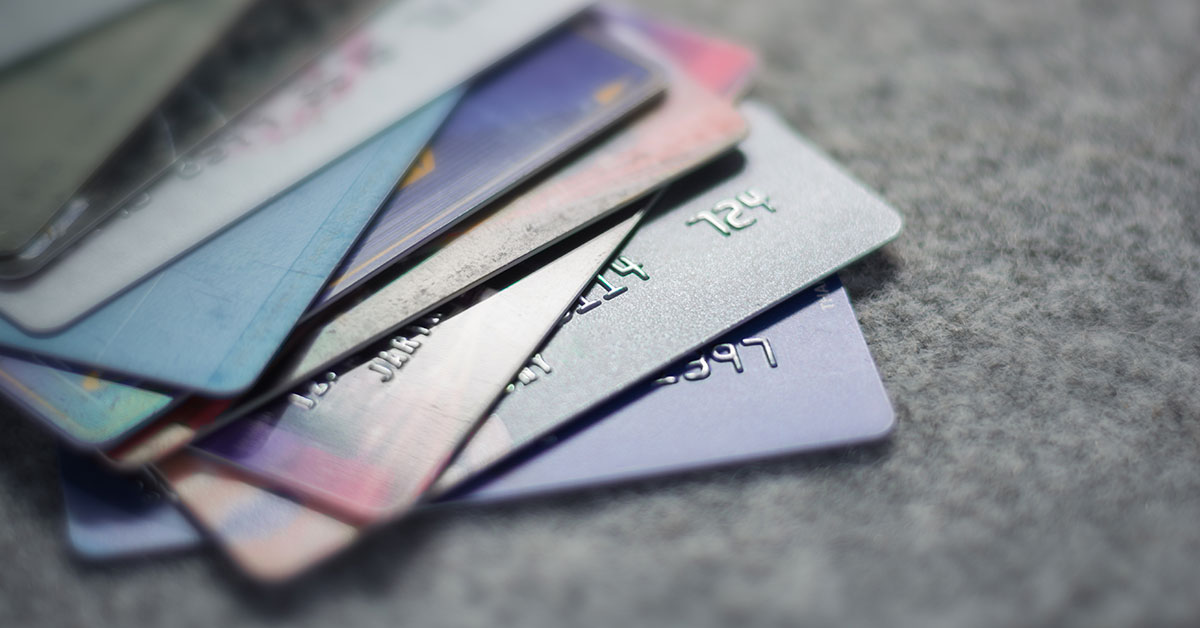
How to Improve Your Credit Score
Having good credit is an essential aspect of achieving financial goals. Whether you're looking to buy a new car, get pre-approved for a loan, or even apply for a job, your credit score plays an important role in determining the outcome. With that said, there's no better time than now to start working on improving your credit score! In this blog post, we'll take a look at how to improve your credit score by discussing topics such as understanding how scores are calculated and tips on what steps to take and how often you should check. By following these simple steps outlined below, you will be well on your way towards building up and maintaining good credit! Let's get started!
Understanding How Credit Scores Work
Your credit score is a number on a scale of 300-850, with 300 being a poor score and 850 being a perfect score. Generally, the higher your score, the better your creditworthiness, indicating that you are less likely to default on a loan or miss a payment.
Credit scores are reported by three main credit reporting agencies: Experian, Equifax, and TransUnion. Each agency may have slightly different information about your credit history, so it's essential to check your credit report with all three agencies to ensure that your information is accurate and up-to-date.
Lenders use your credit score to determine whether to approve you for loans, as well as how much interest they will charge you on the money they lend. Most institutions use the FICO Score model, using that same 300-850 range mentioned earlier. The FICO score range is divided into five categories: excellent, very good, good, fair, and poor. While the credit score range remains consistent across all types of credit, the way in which the score is interpreted by lenders may vary depending on the type of credit being applied for. For example, a credit score of 700 may be considered a good score for a credit card application, but it may be considered a fair score for a mortgage application.
The following are common ranges for the FICO Score model:
- Excellent: 800–850
- Very Good: 740–799
- Good: 670–739
- Fair: 580–669
- Poor: 300–579
Having a better credit score can lead to better rates and terms on loans, saving you money in the long run. Additionally, your credit score can also be used to determine a person's initial deposit on an apartment, utilities, cable service, and even a smartphone. Therefore, it's important to understand how your credit score works and take steps to improve it if necessary.
What Factors Are Used to Calculate My Score
The FICO score—the most commonly used scoring model—takes into account five factors, each weighted differently, to determine your creditworthiness.
Payment History – 35%
Payment history is the most important factor, accounting for 35% of your score. This factor should be your biggest focus if you're looking to improve your credit or start building credit. Your payment history shows lenders that you have paid on time for past debts, indicating that you're a responsible borrower. It's crucial to avoid 30+ days late payments, as these will report to your credit and have a negative impact on your score. Late payments by a few days will usually only incur a late fee and won't have a significant impact on your score.
Amounts Owed – 30%
The amounts owed factor accounts for 30% of your score and looks at your utilization ratio, which is the amount of credit you have access to on revolving loans like credit cards compared to how much credit you're using. If you're using a large percentage of your available credit, this may show lenders that you're overextending yourself and a riskier borrower.
Length of Credit History - 15%
Length of credit history accounts for 15% of your score and considers how long your accounts have been open, including the age of your newest account, the oldest account, and an average age of all your accounts. Having a longer credit history is generally better for your FICO score, but it's not required for a good score. The age of certain accounts and how long it's been since you've used certain accounts are also taken into account.
Credit Mix - 10%
Credit mix accounts for 10% of your score and looks at the different types of credit accounts you have, including credit cards, installment loans, retail accounts, finance company accounts, and mortgage loan accounts. While it's not necessary to have all of these types of accounts, having a greater variety generally leads to a higher score.
New Credit - 10%
New credit also accounts for 10% of your score and considers how often you're applying for new credit. Opening several new accounts at once isn't recommended, as it makes you appear riskier to lenders, especially for those with a short credit history. It's essential to be mindful of how often you're applying for new credit and to space out new credit applications over time.

Ways to Improve Your Credit Score
1. Get a copy of your credit report from all three credit reporting agencies
Getting a copy of your credit report from all three credit reporting agencies is an essential first step in improving your credit score. Once you have your reports, you should check them for accuracy and make a note of any errors. You can get a free credit report from each agency once annually from annualcreditreport.com, a government website.
2. Dispute any errors you find on your credit reports
When you dispute an error, you should do so with each bureau that has the mistake. In writing, explain what the error is, add supporting documentation (copies, not your originals), the bureau's dispute form, and your credit report with the errors you want fixed circled. The bureau has 30 days to investigate your dispute, at which time they must forward the claim to the business that reported the error, or notify you that they won't continue the investigation and for what reason if they find it "frivolous." The business must investigate, and if they find that they made an error, they must report it to all three bureaus. The bureau must give you the results in writing, and a copy of your credit report if your dispute resulted in changes to it. You can also dispute with the business that supplied the information.
3. Try to pay all of your bills on time
Paying bills on time is a key factor in improving your credit score, but it takes about 6 months of on-time payments to see noticeable improvement. Prioritize bills that report to your credit, such as credit card bills, and set up auto-pay where possible to avoid late fees and negative impacts on your credit score. Utility, medical, and cell phone bills usually only report to your credit when they go to collections, so it's not as important to prioritize these bills in terms of credit score improvement. Establish a monthly budget and pay more than the minimum payment to reduce the amount of money paid in interest long-term. By consistently paying bills on time and following these steps, you can improve your credit score over time.
4. Keep your balances low on your credit cards
Another crucial aspect of improving your credit score is to keep your credit card usage low. Your credit utilization rate is one of the most significant determining factors of your credit score. A good rule of thumb is to keep your utilization rate at 20% or below for top-tier credit. Utilization rates of 30-50% plateau, meaning they do not help or harm your credit score. However, a utilization rate of 50% or higher can drastically hurt your score. Therefore, it is essential to regularly monitor and maintain a low utilization rate by paying off credit card balances on time and in full each month.
You should also avoid closing old credit cards, as this can actually harm your credit score. Instead, you can simply stop using them and keep them in a safe place. Alternatively, use them once a month or every 6-12 months for a small purchase and pay off the balance immediately to keep them somewhat active. If you feel like you have too many cards, you can close them out one at a time with about 6-12 months between each closure. Just keep an eye on your utilization rate in the process, as closing a credit card can increase your utilization rate and lower your credit score. For example, if you have $1000 in debt and a credit limit of $5000 split between two cards, your utilization rate is at 20%. Closing one of the cards would increase your utilization rate to 40%, lowering your credit score.
5. Pay down your debt
Another tip to improve your credit score is to pay down your outstanding debt as soon as possible. The more debt you have, the more it can negatively impact your credit score. By paying down your debt, you can reduce your credit utilization rate. If you are struggling to make payments, reach out to your lender and discuss your options. They might be willing to work with you to set up a payment plan or other arrangements to help you get back on track.
For more information and resources on managing your debt, check out CFCU’s Financial Wellness offerings.
6. Become an authorized user
If you know someone with a good credit score who trusts you, you can ask to become an authorized user on one of their cards. As an authorized user, you are not responsible for making payments, but you can make purchases using the card. The responsible use of the credit card by the primary cardholder can help improve your credit score as well. This is also an excellent tip for helping your kids start building their credit score. You don't have to give them the credit card, but by making them an authorized user, they can benefit from the primary cardholder's responsible use and build their credit score.
7. Only apply for new credit when you need it
One important tip to keep in mind when working to improve your credit score is to only apply for new credit when you really need it. Applying for too many new accounts at once can harm your credit score because each application typically results in a hard inquiry on your credit report, which can have a negative impact on your score. To avoid this, it's important to diversify your credit accounts while also being smart and selective about when and where you apply for new credit.
8. Check your credit score regularly to track your progress
Regularly checking your credit score is a critical step in improving and maintaining a healthy credit score. As we mentioned beforehand, you can access your credit report for free once a year from each of the three major credit bureaus (Experian, Equifax, and TransUnion) through annualcreditreport.com, a government site. Checking your credit report regularly allows you to monitor for errors or fraudulent activity and helps you stay on top of your credit history. In addition, free credit monitoring services like Credit Karma and NerdWallet can show you your score as reported by one or two agencies. While these scores may not be the most accurate, they can still give you an idea of whether your score is trending up or down over time.
9. Educate yourself
Educating yourself about credit and personal finance is one of the most important steps you can take to improve your credit score and overall financial well-being. There are many resources available, from books and blogs to online courses and financial advisors. By understanding how credit works and how to manage your finances effectively, you can make informed decisions that will help you achieve your financial goals. Some topics to research might include budgeting, debt management, credit utilization, credit scores, and investment strategies.
For more information, check out Community First Credit Union’s Build Better Credit moveUP module. And if you have any questions about your credit score or ways to build your credit, contact our Member Experience Center at 904.354.8537.
More Expert Advice on Credit Scores
- Credit Card Usage & Your Credit Score
- What is a Good Credit Card Utilization Ratio?
- What is a Rewards Credit Card?
- Loan Terminology to Know
- How to Get Rid of Credit Card Debt
- What is a Good APR for a Credit Card?









